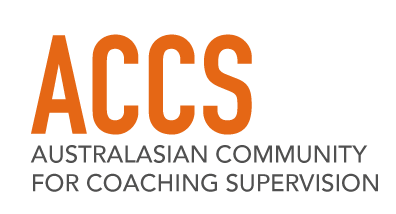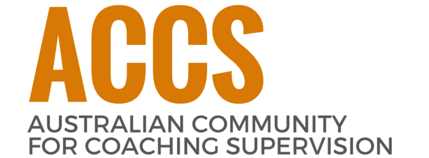Preparing for Coaching Supervision
- Roles and Responsibilities
- Potential Topics for Discussion
“Coaching Supervision is to help you to step back from your work so that you can take a meta-perspective or a broader view, of your practice. “
Hay, J. (2007). Reflective Practice and Supervision for Coaches. Maidenhead, Berkshire: Open University Press
- As The Supervisee: Getting the Most Out Of, and Preparing for, Supervision
As the Supervisee you will be responsible for:
- Preparing for your supervision session: what area of your work is it that you want to bring to supervision
- Presenting your work and relevant issues: for saying what is wanted, needed, what you may be concerned or happy about, or want to explore
- Being willing to engage in and hold an open mind in sessions toward gaining perspectives that may be different to any existing ones you hold
- Thinking about and developing your learning (objectives); and applying the learning
- Feedback to self and supervisor
- Keeping your own notes of sessions
- Your own confidentiality of the process of supervision and the content of sessions for your own reflective process and learning
- Ongoing reflective process and exploration of the content you bring between sessions as needed and some reflective process
More About Post Supervision Reflection
As with coaching, much of the value and learning from supervision may come from the ongoing reflective process you begin to enter into post supervision sessions and so it is worthy to allow some space for this to get the most out of your experience.
Some ideas of post session reflective questions are:
- What have been my key learnings/insights?
- What will I be doing differently? What actions to I take going forward into my work? What will I experiment with? What will I be doing the same?
- What will success look like? In general? With this client?
- What are the key development areas going forward? How may I address these?
- What, if any, are the themes and patterns emerging in my practice?
- It may also be extremely useful to bring back some of these post session reflections to future supervision session to explore your perspectives.
- As The Supervisor: Their Responsibilities in the Relationship
The supervisor’s roles and responsibilities encompass:
- Clearly and effectively communicate with the supervisee to clarify what it is they need from their supervision and to ask for input on how they want to, or the way they prefer to work
- To ensure a good fit between supervisory approach and supervisee’s needs
- Be willing to share about their professional training, experience and history as a supervisor
- Outline the initial and ongoing contract of supervision as well as any sessional contracting
- To be able to understand the system within which the supervisee works, i.e. self-employed, in-house coach, team / individual coaching, etc.
- Giving and receiving feedback
- Monitoring the supervisory relationship
- Creating a safe place where issues can be discussed openly and honestly
- Monitoring ethical issues
- They may suggest texts, books, web sites, courses, other institutions and professionals if appropriate
- Sharing with the supervisee as appropriate or as requested if needed, resources at their disposal, knowledge, skills, experience and expertise. As well as exploring with the supervisee their need for such.
- Being on time and time keeping
- What Can I Bring to Supervision? Potential Topics for Discussion
Each supervisor may approach this topic slightly differently depending on their way of working and expertise. It is wise to clarify this with your supervisor in the early contracting stage. However consider any of the following as legitimate areas for exploration and discussion:
- Bringing issues from your client/s work which are pre-occupying or puzzling you right now, or to which you have a reaction to, or notice you are behaving differently, or making different decisions around it than you normally would.
- Bringing issues from different function areas of your role as a coach or how you engage with aspects of your business model. i.e. engage in reflection on aspects of work that you need to be involved in such as Admin, Marketing, Business Development, Support, Mediation functions that may all be important aspects of your role as a coach.
- Sharing the good work you have done with particular client/s – think about what worked and why. This is often missed in supervision and a great way to reflect on and gain insight about the repeatability of what works.
- Reviewing an aspect of your work you would like to reflect on or feel stronger about, for example ending a client engagement, organisational/individual contracting, or 3 way triangular meetings.
- Specific client/s and the organisational system in which they operate – how they might be connected or not
- Any ethical questions that you’re unsure about, or questioning about something you believe may be an ethical issue
- In your role as an internal coach there may be potential role conflicts. How do you ensure you don’t use confidential information that you’re aware of to make decisions or influence others in your non-coach role? What happens if you get asked for information about your coachee from a senior staff member?
- How does culture and hierarchy influence the coaching conversation? How do you deal with coaching people from other cultures?
- What do you decide to bring to your supervision sessions – and what do you choose to leave out? This can be a useful discussion to deepen your self-awareness.
To further help you in preparation, you may wish to choose one or two specific clients and reflect on each of them using some of the guiding questions below. This may surface some relevant issues you can then bring into supervision.
- What did you notice while you were working with these individuals?
- Reflect on what happened for you, for the client, and when did it happen?
- What interactions were you pleased with and why?
- What was difficult for you? Do you know what may have been difficult for the client?
- What were you thinking and feeling during the conversation?
- What assumptions did you hold regarding what the individual was thinking and feeling? If you did, how did you act on that?
- What didn’t you say to the clients that you wish you might have? What stopped you?



Comments are closed.